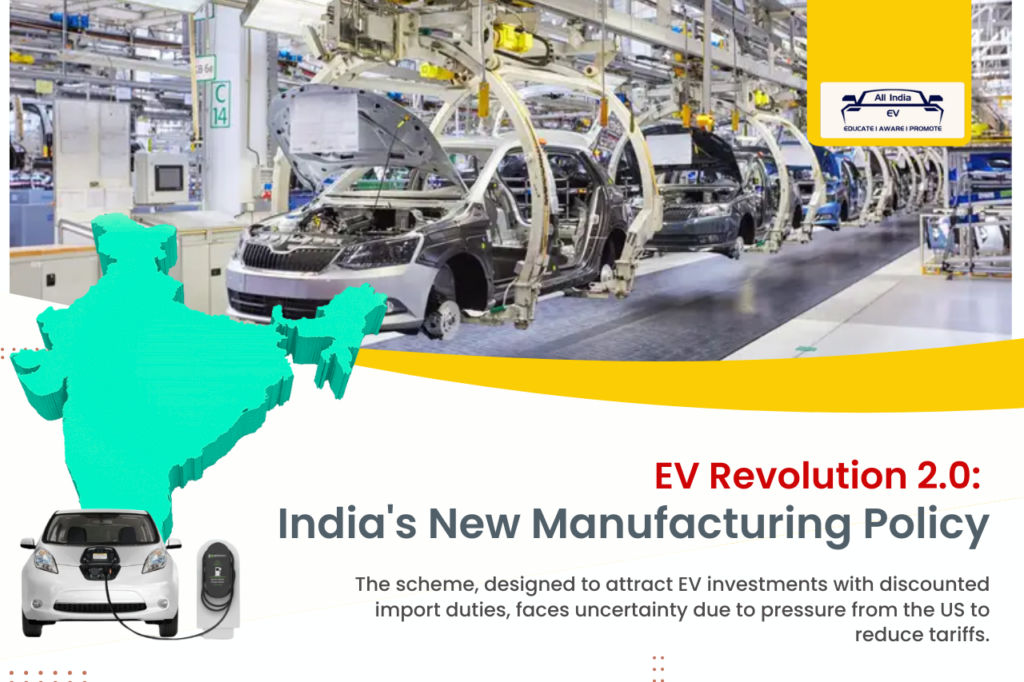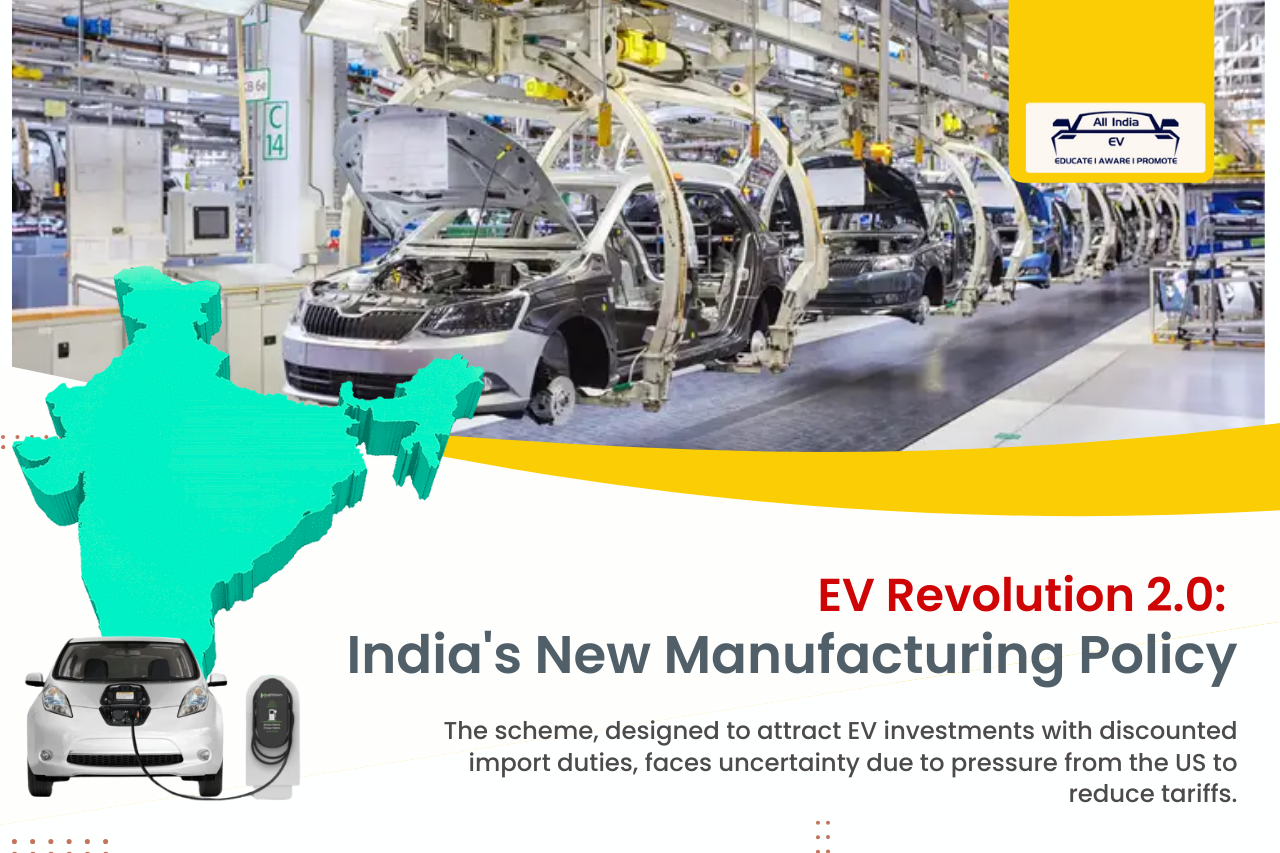
India’s EV investment scheme offering discounted import duties faces uncertainty as US pressure mounts to cut tariffs
India’s electric vehicle (EV) manufacturing landscape could soon see significant policy shifts as the government signals readiness to modify its Scheme for Promotion of Manufacturing of Electric Passenger Cars in India (SPMEPCI). The move comes amid ongoing India-US trade negotiations, where lowering import tariffs has become a major talking point.
✅ SPMEPCI: A Bold Move Awaiting Activation
Announced in March 2024, SPMEPCI was designed to boost domestic EV manufacturing by offering discounted import tariffs to high-end EV companies willing to commit substantial investments in India. Under the original plan, applicants needed to invest at least ₹4,150 crore and meet specific domestic value addition (DVA) targets — 25% within three years and scaling up to 50% by the fifth year — to qualify for 15% import duty benefits on luxury electric vehicles.
However, despite its ambitious framework, the scheme has yet to be operationalised, with final guidelines still pending.
“The guidelines could be launched in a few weeks,” a senior official shared with India EV, adding that approvals from several ministries are awaited. Once the guidelines are issued, applications from EV manufacturers will finally be invited.
✅ Trade Talks Trigger Possible Policy Tweaks
As India and the US work towards finalising a bilateral trade agreement (BTA), discussions around lowering India’s steep import duties on automobiles — currently up to 100% — have intensified. These negotiations could directly impact the contours of SPMEPCI.
Officials confirm that if India agrees to slash car import duties under the trade deal, SPMEPCI will be revised accordingly, possibly enhancing incentives for local manufacturing to maintain competitiveness.
The pressure to reconsider tariffs escalated recently when Tesla officials — backed by Elon Musk’s push — flagged high import duties as a major barrier to their entry into the Indian market. Tesla’s concerns echo broader industry sentiments that India’s current duty structure, while protecting domestic players, poses challenges for attracting top-tier global EV brands.
✅ Balancing Act: Protecting Industry, Welcoming Innovation
India has historically defended high tariffs to nurture its nascent automotive industry, shielding it from international giants. However, with the global EV race heating up and India aiming to position itself as a major EV hub, a more flexible, globally-aligned policy may now be necessary.
We see these developments as pivotal. Balancing the protection of homegrown manufacturing with the need to attract world-leading EV makers will be crucial for India to accelerate its clean mobility goals and strengthen its role in the global EV supply chain.
The coming weeks will be critical as the final version of SPMEPCI — shaped by both domestic priorities and international negotiations — is unveiled.











Whoa…India’s EV plan might change ‘cause of global trade talks – big moves happening! At Nikol EV, we’re all for smart growth: support desi innovation and invite the best tech in. Let’s charge ahead, no matter what!
Get to know more about us here- http://www.nikolev.in
Contact us- 8485853574